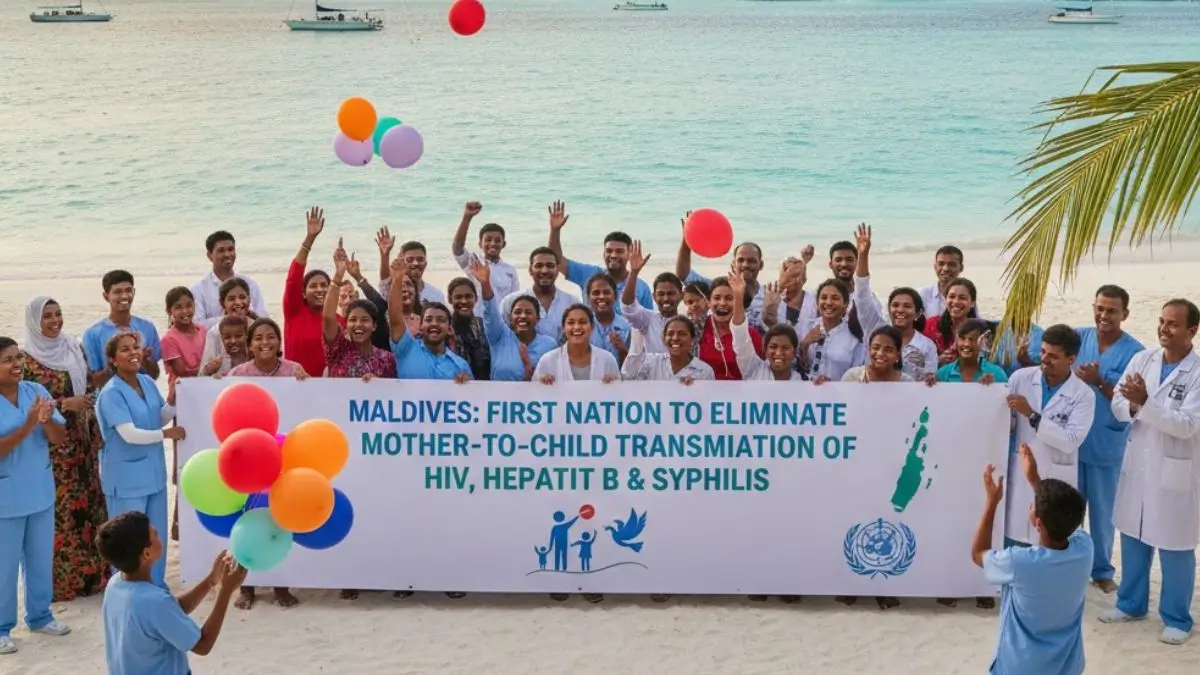

In a landmark public health achievement, the World Health Organization (WHO) has validated the Maldives for eliminating mother-to-child transmission (EMTCT) of hepatitis B, while maintaining its earlier validation (in 2019) for EMTCT of HIV and syphilis. This makes the Maldives the first country in the world to achieve triple elimination.
Mother-to-child transmission leads to infections that affect millions worldwide. In the WHO South-East Asia Region alone, provisional estimates indicate that in 2024, more than 23 000 pregnant women had syphilis and over 8000 infants were born with congenital syphilis. About 25 000 HIV-positive pregnant women required treatment to prevent transmission to their babies, while hepatitis B continues to affect more than 42 million people in the Region.
Maldives achievement is a testament to its unwavering commitment towards universal health coverage, to provide quality and equitable care across its dispersed islands to all, including migrants. said Dr Catharina Boehme, Officer-in-Charge, WHO South-East Asia Regional Office. This landmark feat is an important step towards Healthy Beginnings, Hopeful Futures, for improving maternal and newborn health by ending preventable deaths and prioritizing long-term well-being. I congratulate Maldives and look forward to the country pioneering progress in many other areas, while sustaining these gains.
Integrated care, universal health coverage and partnerships drive historic success
Over years, Maldives has built an integrated and comprehensive approach to maternal and child health. More than 95% of pregnant women receive antenatal care, with nearly universal testing for HIV, syphilis and hepatitis B. The country also has a strong immunization system, with over 95% of newborns consistently receiving a timely dose of hepatitis B birth dose and full vaccine coverage, protecting infants from lifelong infection. As a result, no babies were born with HIV or syphilis in 2022 and 2023, while a 2023 national survey confirmed zero hepatitis B among young children (first grade of school), surpassing elimination targets. These achievements are backed by universal health coverage, which guarantees free antenatal care, vaccines and diagnostic services for all residents, including migrants, supported by strong policies and investment of over 10% of GDP in health.
This milestone reflects strong partnerships between government, private health providers, civil society, and international partners, working together on screening, services, outreach, and technical support.
The Maldives triple elimination stands as a powerful example of how sustained investment in health systems, innovation, and community-based care can change the trajectory of public health, said Ms Payden, WHO Representative to Maldives. WHO is proud to have partnered with the Government of Maldives and will continue to provide technical support to sustain this achievement and ensure that every child across all the islands have a healthy future.
For clarifications/queries, please contact Public Talk of India at:
+91-98119 03979 publictalkofindia@gmail.com

For clarifications/queries,
please contact Public Talk of India at:

